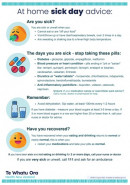Indapamide is used to treat high blood pressure (hypertension). Indapamide is a diuretic, which means it helps your body get rid of extra salt (sodium) and water. It works by increasing the amount of urine (pee) you make.
Low or no data? Visit zero.govt.nz, scroll down the page then click on our logo to return to our site and browse for free.
Indapamide
Sounds like 'in-dap-ah-mide'
Key points about indapamide
- Indapamide is a diuretic, which means it helps your body get rid of extra salt (sodium) and water.
- Indapamide is also called Dapa-Tabs or ‘Water tablet’ or ‘water pill’.
- Find out how to take it safely and possible side effects.

- In New Zealand indapamide is available as tablets (2.5 mg).
- The usual dose is 1 tablet once a day, in the morning.
- Your doctor will advise you how long to take indapamide for.
- Always take your indapamide exactly as your doctor has told you.
- The pharmacy label on your medicine will tell you how much indapamide to take, how often to take it and any special instructions.
- Timing: Take indapamide once a day. It is best taken in the morning so it works during the day and your sleep is not disturbed by you needing to get up to go to the toilet during the night. Read more about tips for taking diuretics. You can take indapamide with or without food.
- Limit or avoid drinking alcohol while you are taking indapamide. Alcohol may increase your chances of getting side effects such as dizziness.
- Missed dose: If you forget to take your dose, take it as soon as you remember. But if it is late in the afternoon, skip the missed dose and continue as usual the next day. Do not take double the dose.
| Be careful when taking some pain relief medicines |
| Taking diuretics together with pain relief medicines called non-steroidal anti-inflammatory drugs (NSAIDs), such as ibuprofen and diclofenac, and medicines called ACE inhibitors or ARBs, can be harmful to your kidneys. Read more about NSAIDs and blood pressure medicines. |
- Are you pregnant or breastfeeding?
- Do you have difficulty peeing, or do you have prostate problems?
- Do you have gout or diabetes? These conditions can be made worse by indapamide.
- Do you have problems with your liver or kidneys?
- Are taking any other medicines? This includes any medicines you are taking which you can buy without a prescription, as well as herbal and complementary medicines and medicines you can buy for pain relief.
If so, it’s important that you tell your doctor or pharmacist before you start indapamide. Sometimes a medicine isn’t suitable for a person with certain conditions, or it can only be used with extra care.
Like all medicines indapamide can cause side effects, although not everyone gets them. Often side effects improve as your body gets used to the new medicine.
| Side effects | What should I do? |
|---|---|
|
|
|
|
|
|
|
|
|
|
| Read more about medicines and side effects and reporting a reaction you think might be a side effect. | |
The following links have more information on indapamide.
- Dapa-Tabs(external link) Medsafe Consumer Information Sheets, NZ
- Indapamide(external link) NZ Formulary Patient Information
Resources
5 questions to ask about your medications(external link) Health Quality and Safety Commission, NZ, 2019 English(external link), te reo Māori(external link)
References
- Indapamide hemihydrate(external link) NZ Formulary
Brochures

At home sick day advice
Health New Zealand | Te Whatu Ora, 2023

Medicines and side effects
Healthify He Puna Waiora, NZ, 2024

Health Quality and Safety Commission, NZ, 2019 English, te reo Māori
Credits: Sandra Ponen, Pharmacist, Healthify He Puna Waiora. Healthify is brought to you by Health Navigator Charitable Trust.
Reviewed by: Maya Patel, MPharm PGDipClinPharm, Auckland
Last reviewed:
Page last updated:





